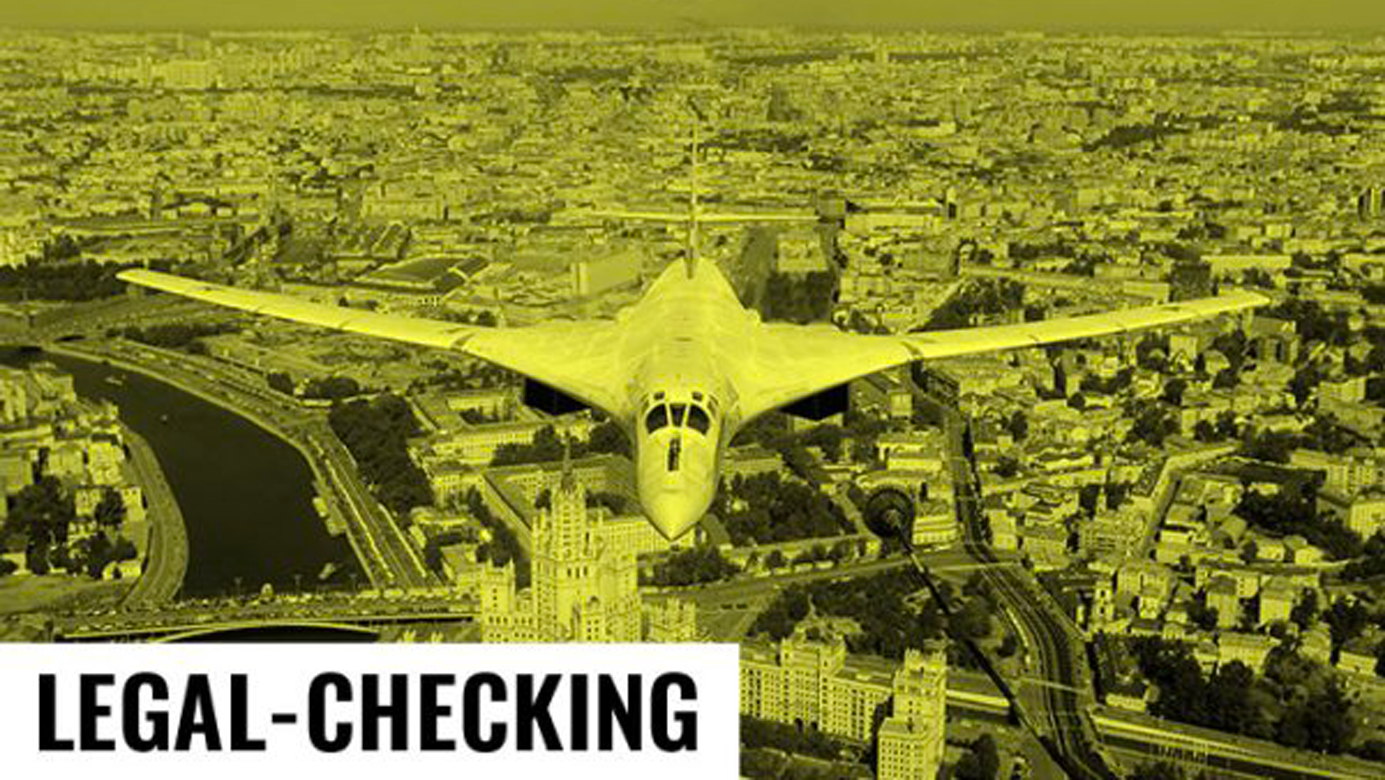Russia-Ukraine war: no, the ‘spiderweb’ operation did not violate the new start nuclear treaty
Russia-Ukraine war: no, the ‘spiderweb’ operation did not violate the new start nuclear treaty26/06/2025
Some social media users have claimed that Ukraine’s June 1 drone attack on Russian military bases violated the New START nuclear arms control treaty.

This article was written by Clarisse Le Naour and published in French on Les Surligneurs.
Their arguments fall apart upon closer examination—whether regarding the treaty’s scope, the parties involved, or the nature of the targets. In any case, the treaty, signed between the U.S. and Russia, has been suspended since 2023 by Vladimir Putin.
As the war in Ukraine has increasingly spread beyond frontlines, Kyiv launched a bold operation dubbed "Spiderweb" on June 1, 2025, striking four Russian strategic airbases more than 5,000 kilometers from the front. Ukraine’s security services (SBU) claimed responsibility, announcing the use of 117 drones to target 41 heavy military aircraft, including the Tu-95 and Tu-160 bombers—planes capable of carrying nuclear weapons.
The unprecedented scale of the attack led some analysts to call it a "game-changer." As is often the case with this war, the operation sparked a flurry of discussion and analysis on social media.
While many users freely shared their opinions, some pushed further, invoking international law. According to these commentators, Ukraine’s strike supposedly violated the New START treaty.
“This is cowardice and treachery—the U.S. is largely responsible for violating the New START treaty,” one Facebook user wrote. Another claimed, “The West set the trap, and Kyiv pulled the trigger.” According to them, Washington allegedly provided Ukraine with sensitive data that enabled the strikes on Russian sites.
However, this claim ignores key facts: the treaty’s actual scope, its signatories, and the nature of the targets. More importantly, the treaty—which was designed to regulate nuclear disarmament between the U.S. and Russia—has been suspended since 2023, meaning it’s no longer in effect.
A Suspended Bilateral Treaty
To understand the issue thoroughly, we need to go back to the source. The New START treaty, signed between the United States and Russia in 2010, concerns strategic nuclear disarmament. It is the third such treaty—the first was signed in 1991—and aims to reduce the number of deployed nuclear weapons held by both powers, particularly by capping the number of nuclear warheads, missiles, and submarines.
It also requires transparency measures from both parties. In short, to prevent an arms race and an unreasonable nuclear escalation, the two global military giants agreed to ensure balance in their nuclear capabilities.
However, here’s the problem: the treaty is currently inactive. Russia suspended its participation in 2023, halting its obligations. By international law’s principle of reciprocity, the U.S. is no longer bound by it either. Simply put, neither country can invoke New START at this time.
At the time of the treaty’s suspension, Russia stated that it wanted to protect its nuclear military positions. Indeed, among the transparency obligations, the treaty included provisions for representatives from each country to visit the other’s facilities.
It was an obligation the Kremlin no longer wished to comply with, given that the United States was providing significant—and increasing—military support to Ukraine. “As long as America continues to support Ukraine militarily and the war goes on, Russia considers its vital interests to be under threat,” explains David Cumin, a lecturer in international relations at Lyon 3 University.
Today, it is the breach of these transparency measures—even though they are no longer enforced—that some internet users cite as a potential violation of the treaty. But what does the treaty actually say?
Misunderstood Transparency Rules
New START’s transparency rules are detailed in Articles III, V, VI, X, and XI. They include mutual notifications (about missile movements or new facilities), on-site inspections, annual data exchanges on nuclear warheads, and the use of national satellites.
This exchange of information is at the heart of the issue here. “The New START treaty required Russia to make its bases visible to prove that no attack was being prepared. Ukraine, with the help of U.S. satellites, used this ‘transparency’ to precisely target Russian bombers,” summarizes one Facebook user.
Others claimed the treaty obliged Russia to leave its bombers in plain view for Ukraine to strike. “That’s false,” counters Nicolas Haupais, a public law professor at Paris-Saclay University. “The treaty never required countries to leave weapons in the open. It simply prohibited disguising or hiding them.”
Indeed, Article X of the treaty states that the parties commit “not to employ concealment measures that impede verification, by national technical means, of compliance with the provisions of this treaty.”
In addition to these misinterpretations of the treaty, several experts, including Nicolas Haupais, affirm that Ukraine did not need to rely on information from its Western allies—whether derived from the treaty or not—to know the locations of these Russian military bases.
In an interview with the exiled Russian investigative media outlet Meduza, arms control expert Pavel Podvig explained that Operation “Spiderweb” likely did not require any special intelligence involving the United States. According to the expert, “someone sitting on a hill with binoculars” would have been enough to confirm the presence of the bombers to the drone operator.
Is This a "Red Line" Justification for Escalation?
The issue of U.S. involvement in this attack is far from trivial for the Russians. Since the beginning of the war, the Kremlin has stated that direct participation by the United States or NATO in the war in Ukraine would be a “red line,” to which Russia would respond through more dangerous means.
In other words, the narrative adopted by several internet users claims that the attack on Russian air bases violated the treaty and could now justify a nuclear response from Russia.
However, this claim is incorrect, as we have shown: the New START treaty was not violated during Operation Spiderweb. Any accusation of treaty breach in the context of Ukrainian actions would be legally unfounded.